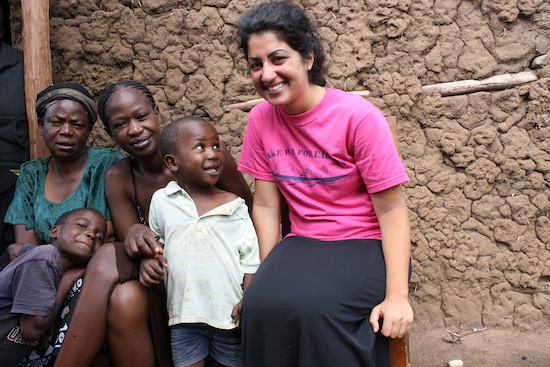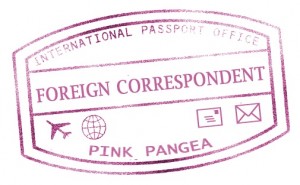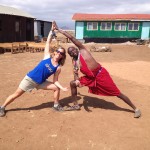Hakuna Matata Means No Worries: Keeping my Cool in Kenya


After my usual fifth grade English lesson (today, about a passage called A Hindu Wedding) I was approached by my colleague Mr. Eugene and asked to help teach Life Skills class to the same group of fifth graders. I masked my confusion about what on earth this class would entail by handing him a lesson I had prepared for my girls’ circle (an after-school program I’ve started) later that day—a series of situations dealing with difficult emotions, for example:
You are giving a presentation in front of the class, and you drop your notes. You turn red, and the class begins to laugh. How do you react?
Hakuna Matata Means No Worries: Keeping my Cool in Kenya.
Serious business like that. Anyways, we went in to teach what I thought would be a wholesome lesson on handling emotions in a healthy way. Eugene and I passed out the scenarios and told each group to come up with a skit. I was pretty excited. I live for performance, and I couldn’t wait to see what the class had in store. The first group went up (you are left out of a talent show by your friends—how do you react?) and a young boy named Gideon played the jilted friend.
“You left me out! Why?!” he yelled. Then, he shoved the boy across from him. The boy shoved right back. “Because!” he shouted. There was a skirmish. The scene ended, and Eugene clapped while I stared in shock. Somehow, this was not how I imagined the reaction being played out.
The next group went up (you realize your friend has been calling you mean names—what do you do?). The two girls playing the warring friends began yelling at one another, “Ayy, miss big stomach!” the first teased. “I am not the one with the big stomach! You are! And you have big eyes!” came the reply. Another skirmish, more clapping by Eugene, and a further confused stare from me.
The next few groups went up, and I watched, horrified as nearly every scene escalated into a shouting match and a couple of shoves. Where were the attempts at conflict management? At peaceful resolution? Where was my docile, pleasant fifth grade class? They were so excited to learn about ostriches. This was deeply troubling. I was in the midst of trying to reconcile what I had just seen, when I heard Eugene:
“Our teacher has something to say,” he announced to the class, motioning for me to come forward. I widened my eyes in a pleading sort of I got nothing look. “Just say something about emotions kidogo,” he whispered. I stumbled forward. “Umm ok, class. Well, as you saw, we have situations where we feel different emotions.” Apparently consistent and violent anger, I thought. “In all of these, I think it’s important to…uhh, act as Christians, and to just always…be kind,” I finished lamely. I shot another pleading look at Eugene, and he stepped in. As he launched into a lecture about different types of emotions, I stared at the blackboard, thinking—for probably the thousandth time since I’ve been here—well, that was unexpected.
Since I’ve been in Kenya, I have had to throw out and recreate almost every single expectation I had carried with me to this beautiful and strange country. I feel as if this whole journey has been one big, metaphorical uphill bike ride, and if I stop pedaling forward for one second, I’ll come crashing back down to the bottom. It’s half exhausting, half exhilarating. I feel always on my toes. And like I’m developing a fantastic sense of humor. Seriously, hakuna matata, all the time.









Karibu Kenya tena (Welcome back to Kenya)